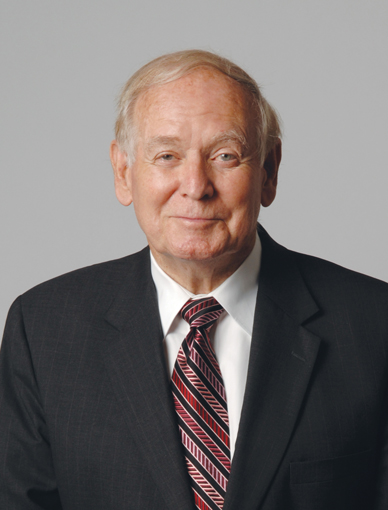Elbert: Bob Ray’s thoughtful legacy

DAVE ELBERT Jul 18, 2018 | 7:49 pm
3 min read time
609 wordsBusiness Record Insider, Opinion, The Elbert FilesOn July 7, the day before Bob Ray died, the Wall Street Journal ran an article that reminded me of how Ray became Iowa’s most transformative governor.
The headline was “Don’t Simply Dive Into Action: Think.” A subhead added: “We have a bias for busyness, and it keeps us from pausing to learn.”
That, for me, was a pretty good summary of why Ray was able to make substantive changes in state government that included revamps of educational funding, transportation oversight and natural resource protection, not to mention public employee protections.
Ray wasn’t just a nice guy and a smart politician. He was something that is increasingly rare in the public sector: a strategic leader.
The key to Ray’s success was the thoughtful way in which he made decisions.
Or, just as often, didn’t make them.
During Ray’s 14 years as governor from 1969 to 1983, there were many times when his procrastination drove his staff, and the reporters who covered him, crazy. Perhaps, the most famous example was his decision about whether to seek an unprecedented fifth term in 1982.
I mentioned that situation in a column recently that compared the 1982 election with this year’s race for governor. In that case, Ray put off a public announcement that he would not run until there was no time for any Republican, except Lt. Gov. Terry Branstad, to file nomination papers. Branstad, of course, went on to win six non-consecutive terms as governor.
I credit much of Ray’s success to the fact that he realized better than most that procrastination is sometimes the best policy. Ray believed that many problems would eventually fade away when ignored. And most of the time, he was right.
There were, of course, exceptions, and for the most part Ray was smart enough to see them and act when needed. In 1974, he supported efforts to remove the sales tax from food and prescription drugs. Four years later, he was an ardent backer of the bottle bill that requires nickel deposits for soda and beer containers.
His most enduring decision was supporting the Iowa migration of Vietnam War refugees. That was a case where he could easily have held back and seen what others did first, knowing there would be a lot of pushback. Instead, he was the first governor to invite Vietnam War refugees into his state and establish a system for integrating them into our lives.
But that was an exception. On most issues Ray’s approach was highly cautionary.
Jon Bowermaster, wrote “Governor: An Oral Biography of Robert D. Ray” in 1987, using quotes from several contemporaries.
Businessman Tom Stoner explained how Ray’s staff handled his propensity for procrastination. He said that Ray’s press aide, Dick Gilbert, “could get Bob Ray to do things that nobody else could. … Dick would call a press conference for 10 in the morning, tell Bob Ray the press was on their way, and force him to make a decision.”
The people Bowermaster interviewed offered other insights into Ray’s management style, including:
“He didn’t rule by committee, but he was always interested in a tremendous amount of input,” said Marvin Pomerantz.
“He likes to function like a judge,” Stoner agreed, “listening to opposing views and then make a decision.”
Ray said: “What really was best for me was to get out among the people. Far too often we spent too much time debating governmental issues, time that should have been spent out talking to people.”
While the Wall Street Journal article made no mention of Ray, I couldn’t help but think of him when I read, “Learning requires recharging and reflection, not constant action.”










